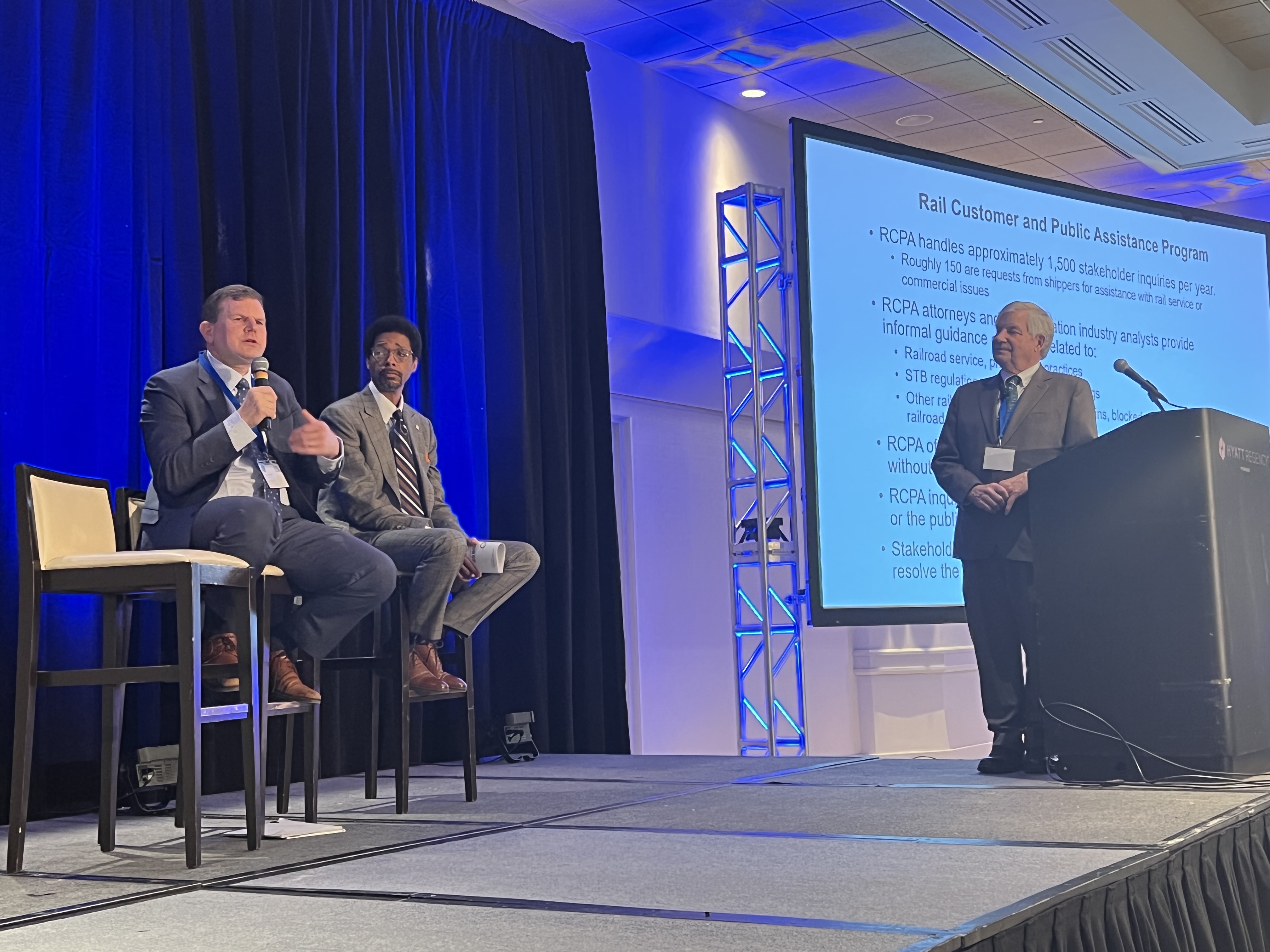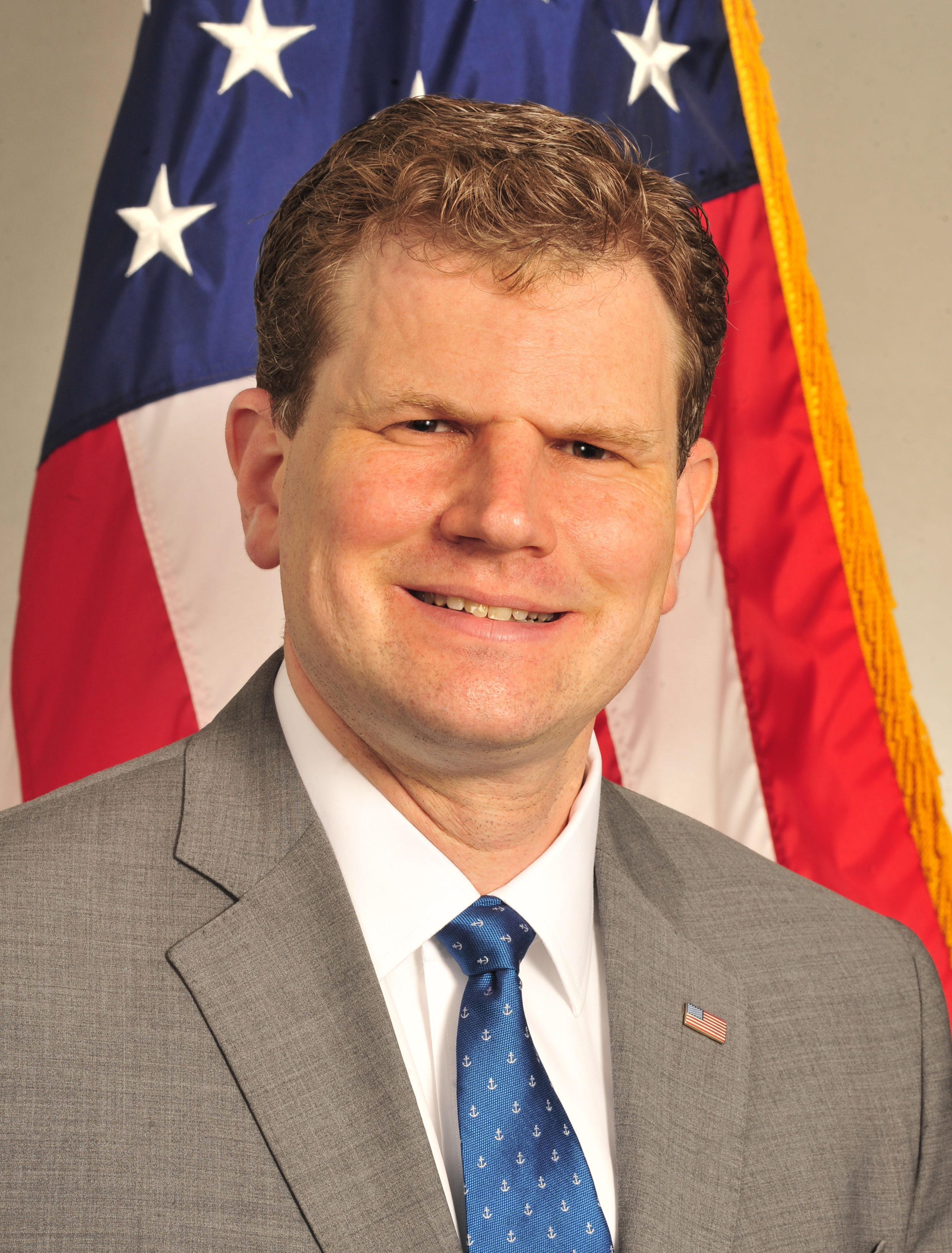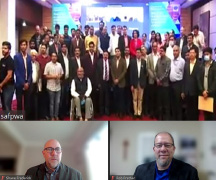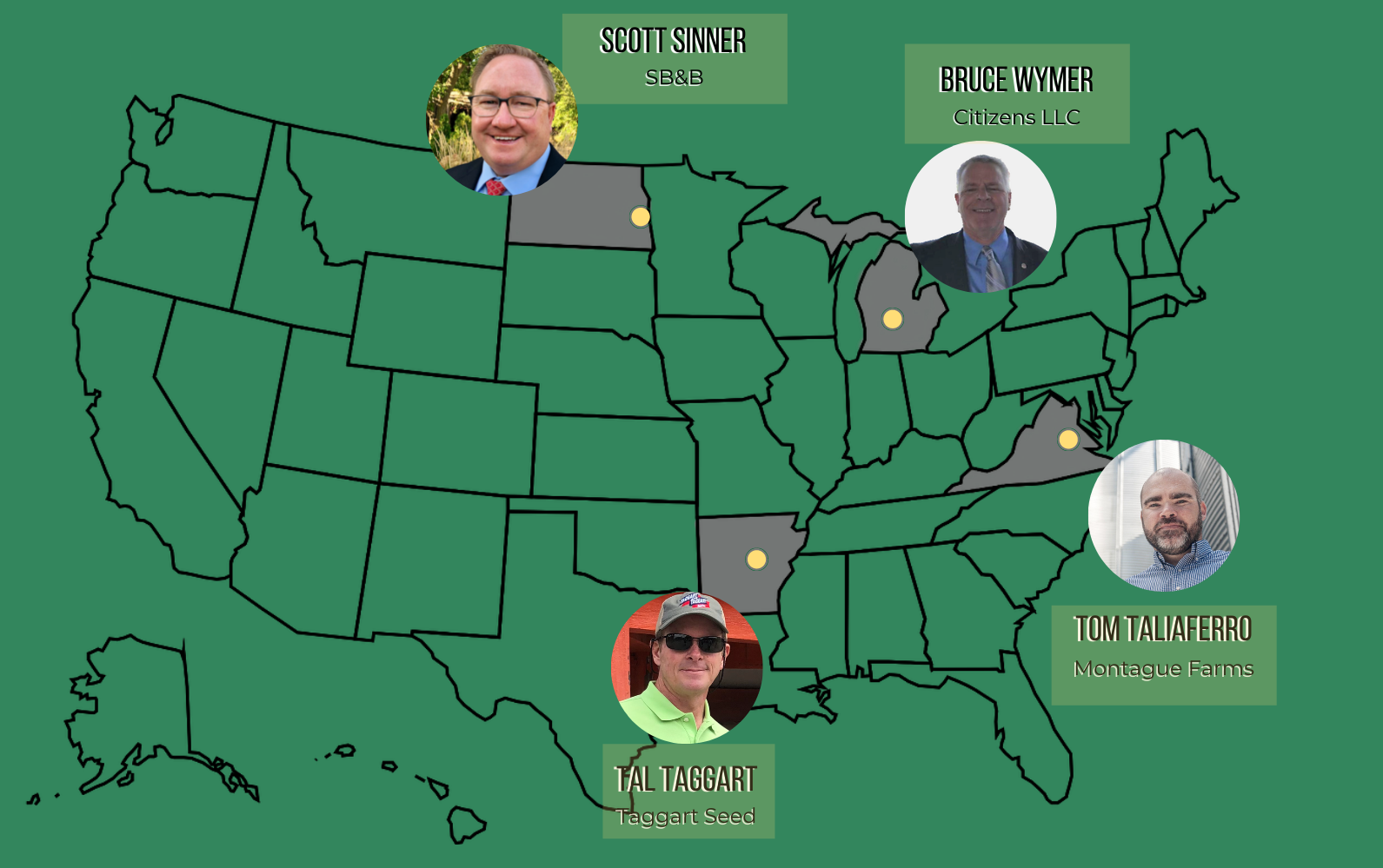Transportation Go! brings ag shipping industry to Milwaukee
Agricultural transportation has myriad challenges, no matter the mode of movement, and representatives of all points on the supply chain gathered in Milwaukee, Wisconsin, last week to discuss issues and look ahead to the future.
“The most important thing is open and continuous communication, and that’s what this conference is,” said the conference’s emcee, Dr. Richard Stewart, professor at the University of Wisconsin-Superior and director of the university’s Transportation and Logistics Research Center. “We need to continue this conversation at every level we can.”
The conference, being in the home city of Port Milwaukee, focused on the Great Lakes and the St. Lawrence Seaway system, an area of great growth potential for ag exports, especially with many infrastructure investments and developments underway.

Federal Maritime Commission Chairman Dan Maffei, Surface Transportation Board member Robert Primus and MC Richard Stewart
“We want to grow the options the shippers have out of this region,” said Peter Hirthe, international trade specialist for the Great Lakes St. Lawrence Seaway Development Corporation. “There are some exciting developments. We have the capacity. We have the investment.”
Transportation Go! featured a robust agenda with presenters from Great Lakes ports, as well as those representing ocean shipping, railroads, intermodal trucking and national commodity groups.
Daniel Maffei, chairman of the Federal Maritime Commission, and Robert Primus, member of the Surface Transportation Board, were part of a spirited discussion about finding solutions to challenges such as container availability, from rail to sea, including a bipartisan Ocean Shipping Reform Act currently making its way through Congress. (A House version has been passed, while a Senate version was introduced last month.)
“I’m taking all this stuff back to Washington, and everything I believe I can do I’m going to do,” Maffei said.
Maffei testified to a Senate committee prior to going to Milwaukee and announced that FMC’s audit team will expand its scope to get information from carriers on their handling of exports and how to do better. Also, FMC’s Bureau of Enforcement is prioritizing cases involving exports.
Primus touted the U.S. rail network but said there are concerns about the lack of good, reliable service and those problems have affected customers including Transportation Go! attendees.
“Everyone who attended Transportation Go! appreciated the opportunity to share and discuss transportation challenges and solutions,” said Eric Wenberg, executive director of the Specialty Soya and Grains Alliance, which hosted and organized the event. “Having speakers like Dan and Robert there to talk to ensured that everyone left the conference looking forward, not back, with action items to advance ag transportation.”
In a recap of the “bright ideas” that came out of Transportation Go! Jason Tutrone, transportation attorney with Thompson Hine, said: “This is really an opportunity for us to strengthen our supply chains and ensure we have a regulatory framework in place. The stars are aligned on the regulatory side to make some much-need reforms. …
“I encourage all of you to engage your trade association on these issues. They’re a strong voice that are capable of getting thigs done in Washington.”
Transportation Go! was made possible by its sponsors: Wisconsin Soybean Marketing Board, Great Lakes St. Lawrence Seaway Development Corporation and Minnesota Soybean Research & Promotion Council (platinum); CHS, SB&B, Scoular, North Dakota Trade Office, The Redwood Group; Scoular, Illinois Soybean Association, and Global Processing (silver); Port Milwaukee, South Dakota Soybean Research & Promotion Council and Soy Transportation Coalition (social hour); Great Lakes St. Lawrence Seaway Development Corporation (name badge/lanyard).
“We appreciate our sponsors including Wisconsin and our other state sponsors who pulled the region together,” Wenberg said.



 Newly elected SSGA Chairman Rob Prather was a co-chair for the virtual session and also presented on buying Identity Preserved field crops from the United States. SSGA Manager of Strategic Programs Shane Frederick then presented on the new U.S. Identity Preserved Assurance Plan and brand mark, which was launched on Dec. 2, and SSGA University.
Newly elected SSGA Chairman Rob Prather was a co-chair for the virtual session and also presented on buying Identity Preserved field crops from the United States. SSGA Manager of Strategic Programs Shane Frederick then presented on the new U.S. Identity Preserved Assurance Plan and brand mark, which was launched on Dec. 2, and SSGA University. The update was an opportunity to share information, including 2021 post-harvest crop conditions and an outlook for 2022. Presenters represented different companies in different regions of the United States.
The update was an opportunity to share information, including 2021 post-harvest crop conditions and an outlook for 2022. Presenters represented different companies in different regions of the United States. On June 1, SSGA had three representatives presenting online at the Southeast Asia Soy Excellence & Protein Summit, which was put on by the U.S. Soybean Export Council. The trio spoke during a session called “U.S. Soy – Your Complete Solution Provider for Food Grade Soybeans.”
On June 1, SSGA had three representatives presenting online at the Southeast Asia Soy Excellence & Protein Summit, which was put on by the U.S. Soybean Export Council. The trio spoke during a session called “U.S. Soy – Your Complete Solution Provider for Food Grade Soybeans.” Sessions on Wednesday (June 9) will include SSGA presentations from Eugene Philhower, SSGA IP technical adviser for Europe (“U.S. Identity Preserved – More You Should Know”), and Bryan Stobaugh, SSGA Agronomy Action Team Chair and Director of Licensing and Genetics for Missouri Soybean (“U.S. Identity Preserved – From the Ground Up”).
Sessions on Wednesday (June 9) will include SSGA presentations from Eugene Philhower, SSGA IP technical adviser for Europe (“U.S. Identity Preserved – More You Should Know”), and Bryan Stobaugh, SSGA Agronomy Action Team Chair and Director of Licensing and Genetics for Missouri Soybean (“U.S. Identity Preserved – From the Ground Up”).

